Shrubby Twinleaf
Display all 18 images
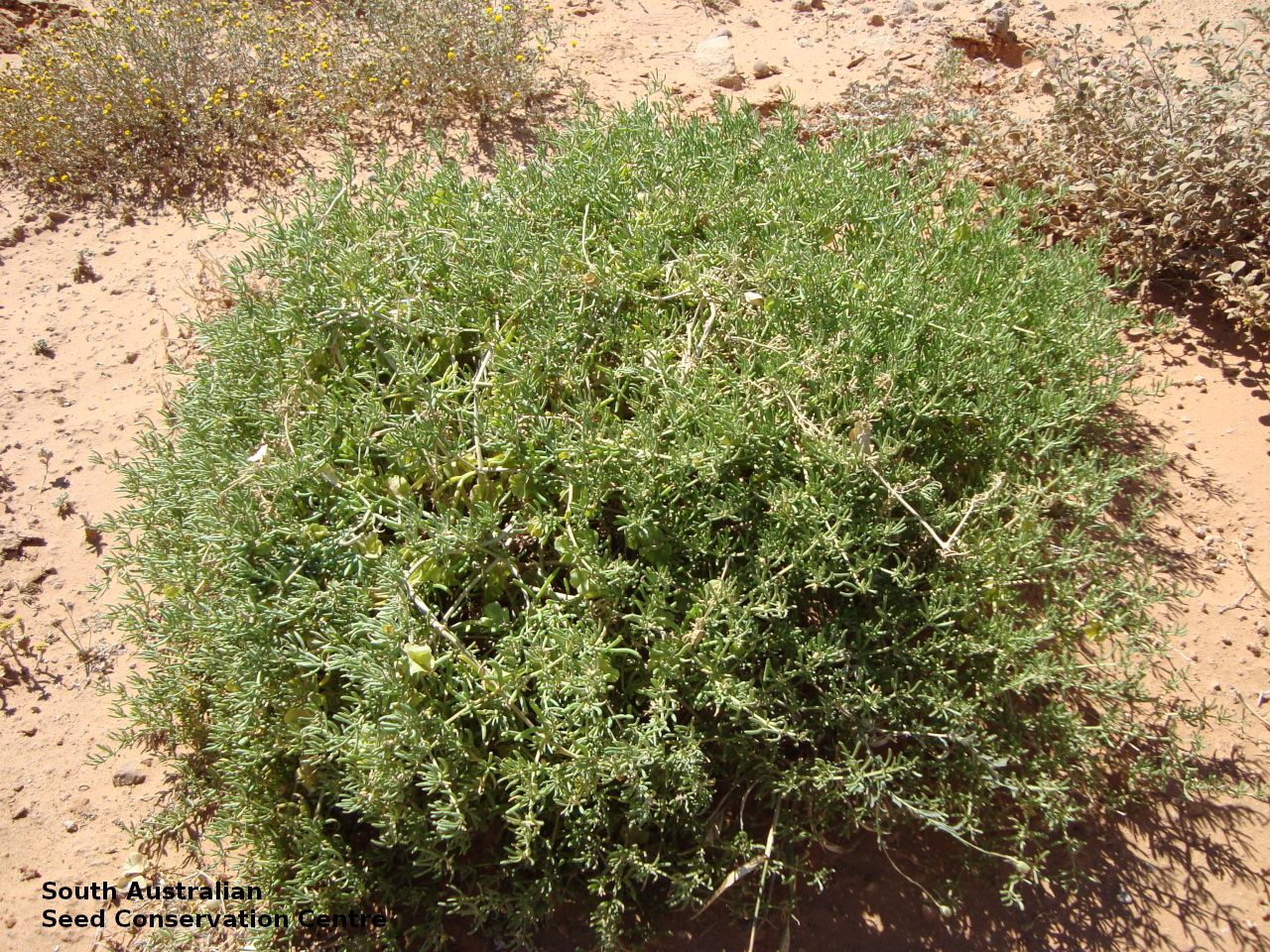
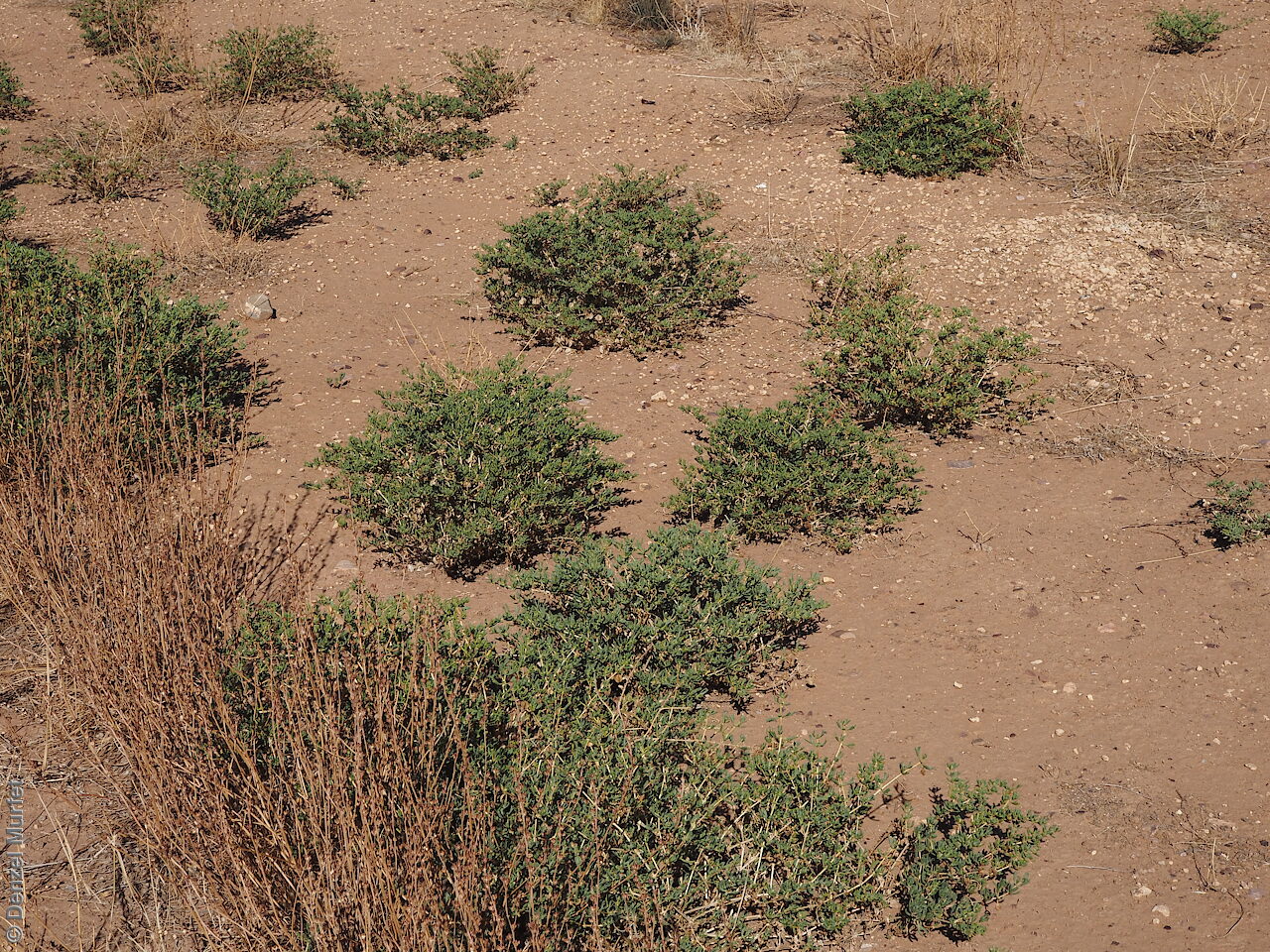
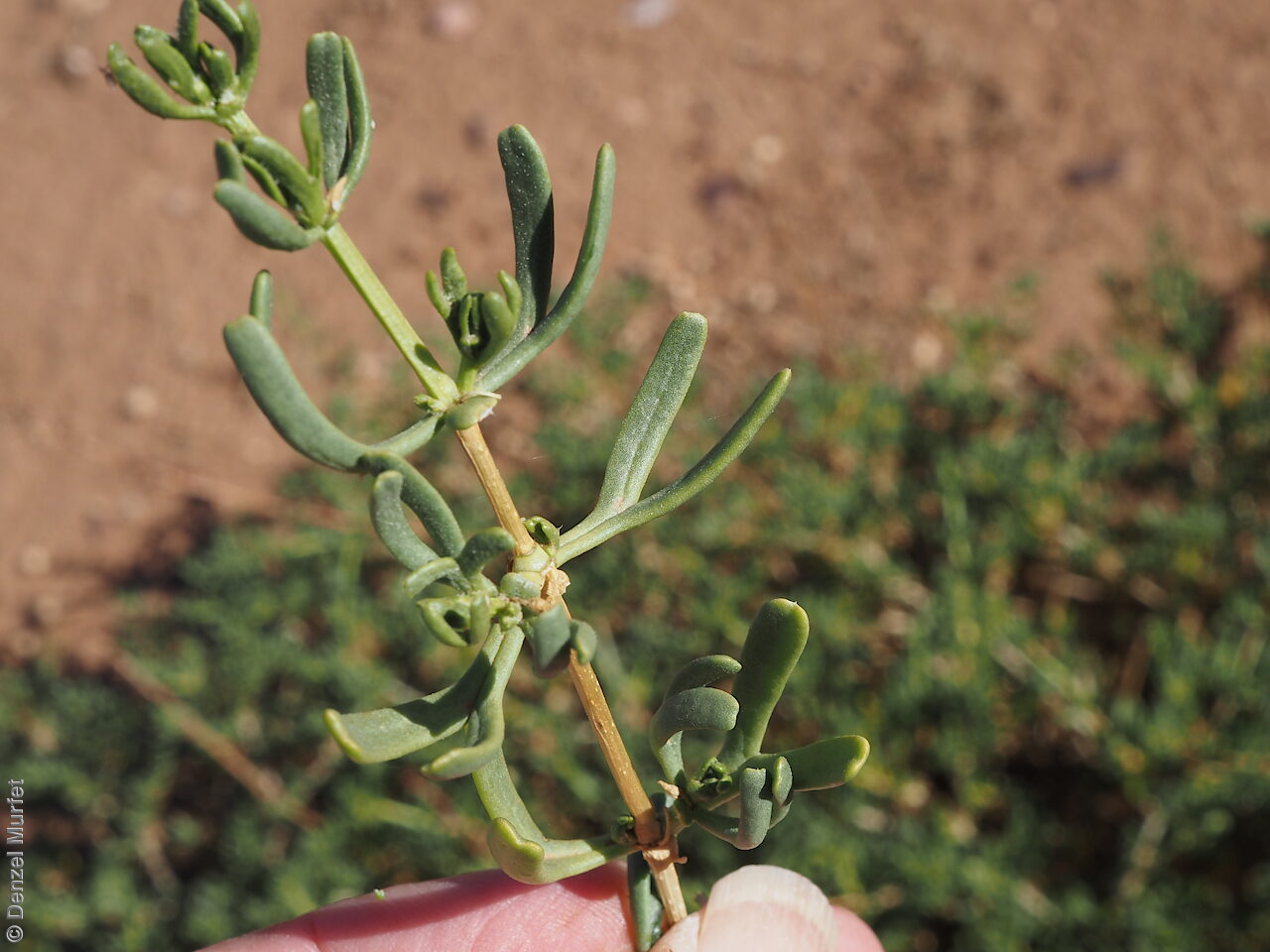
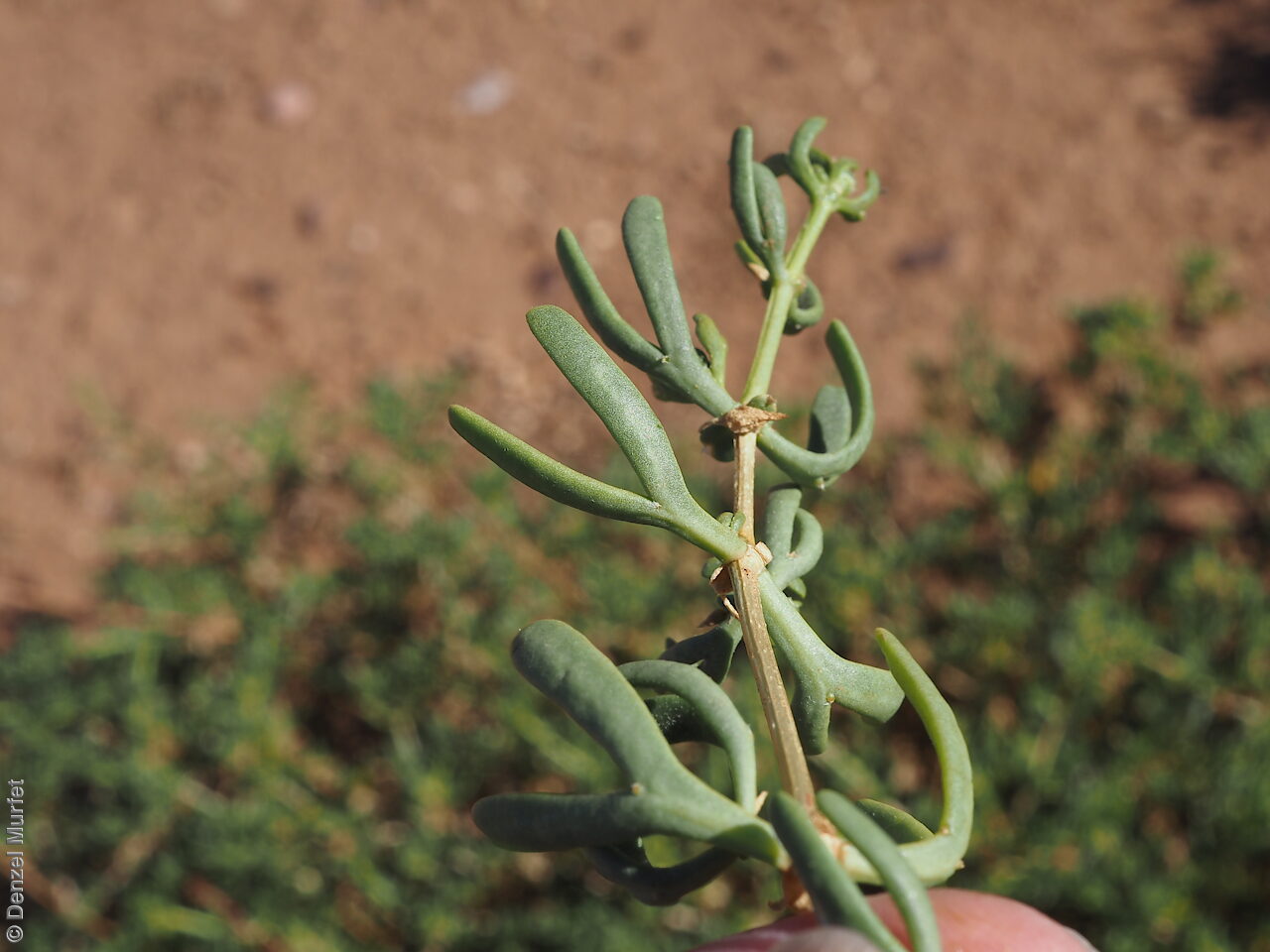
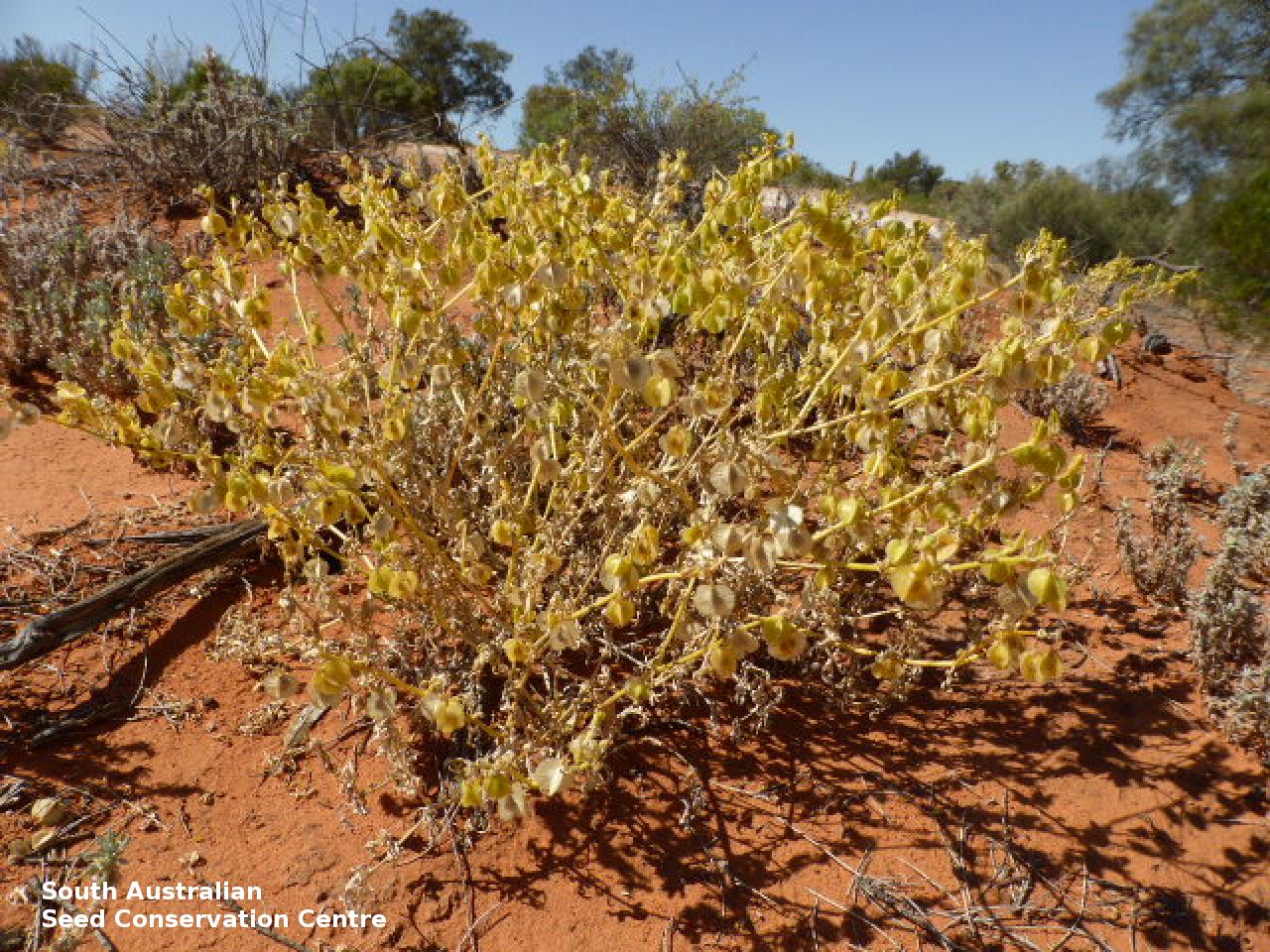
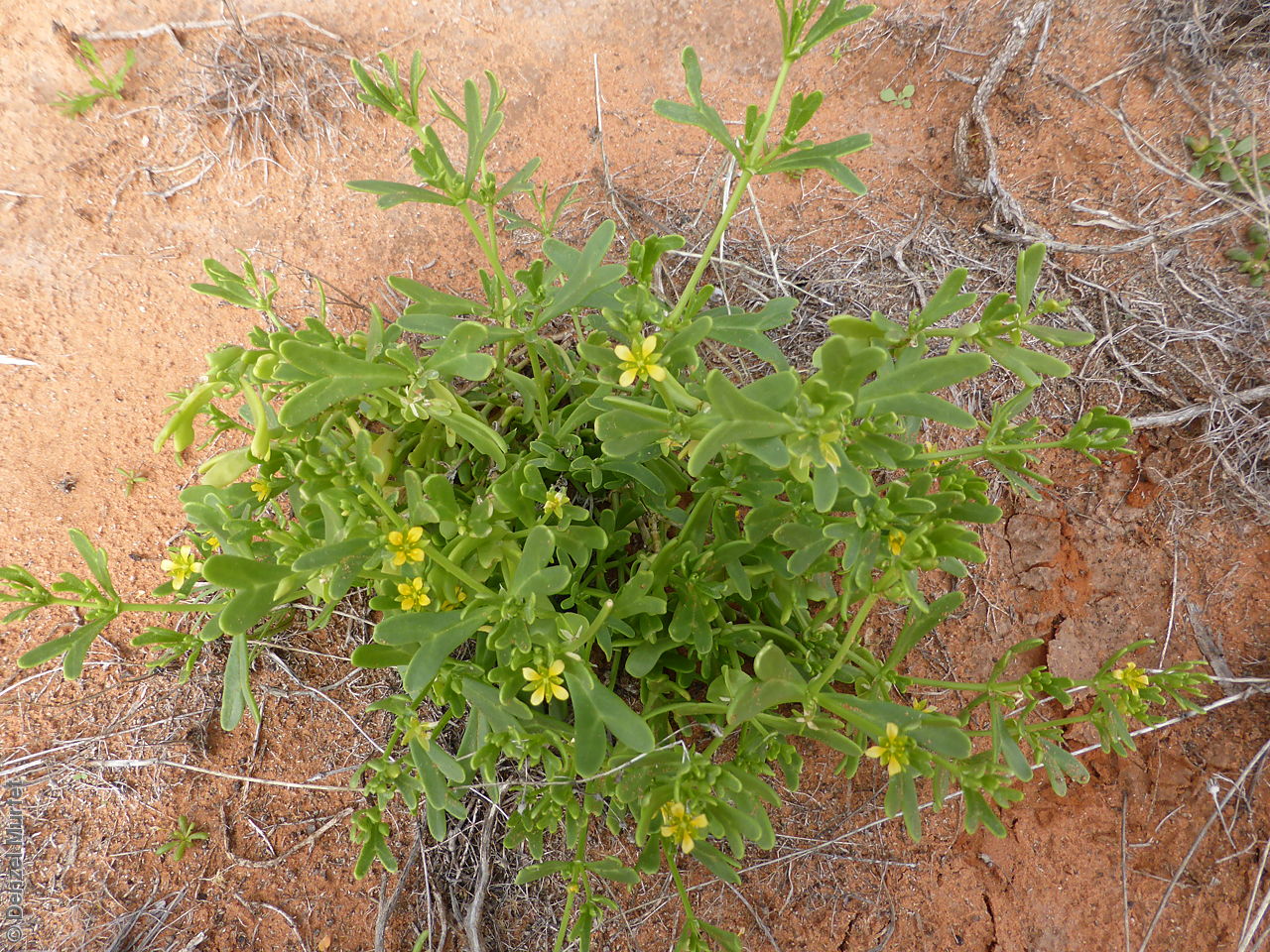
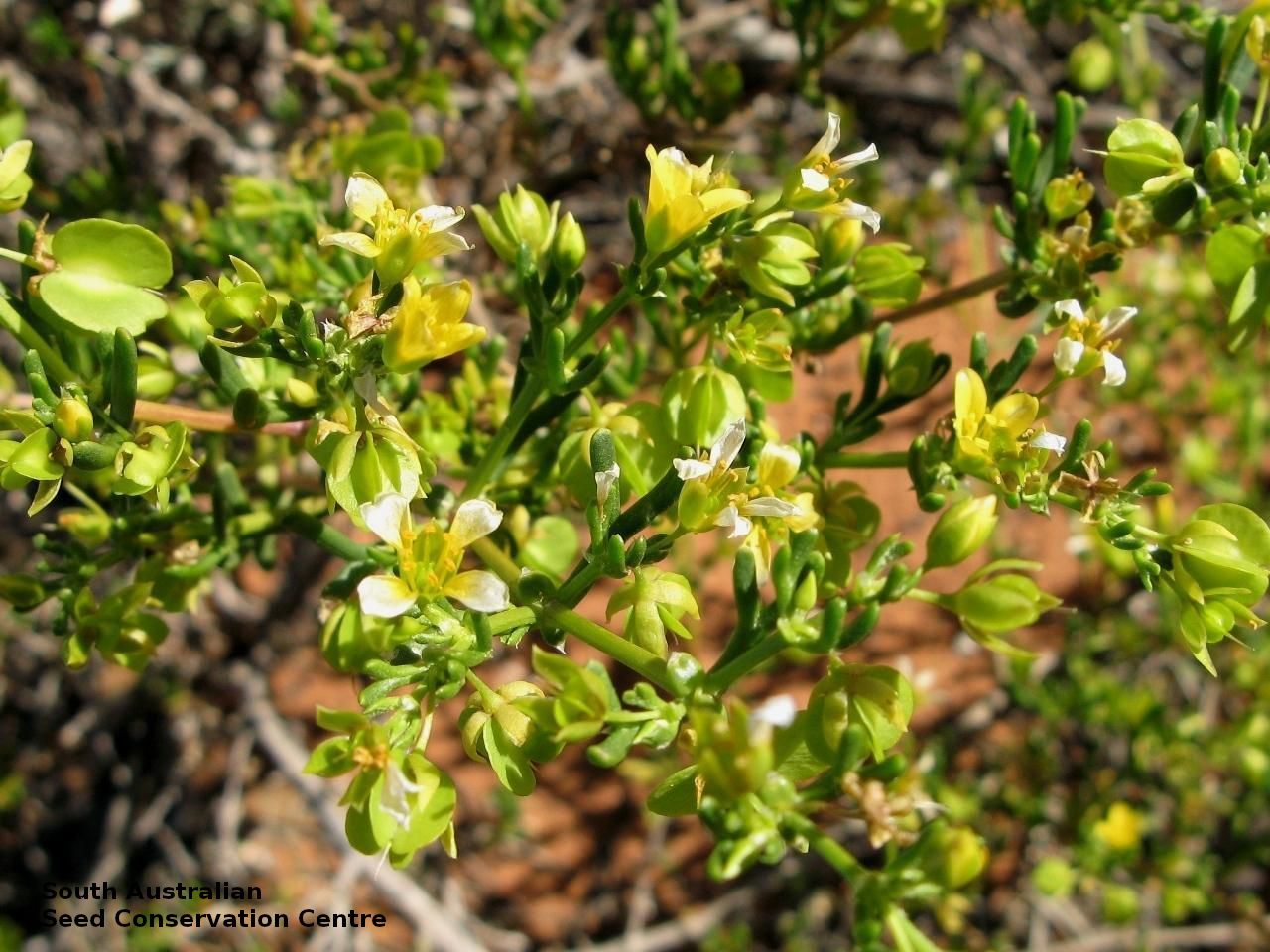
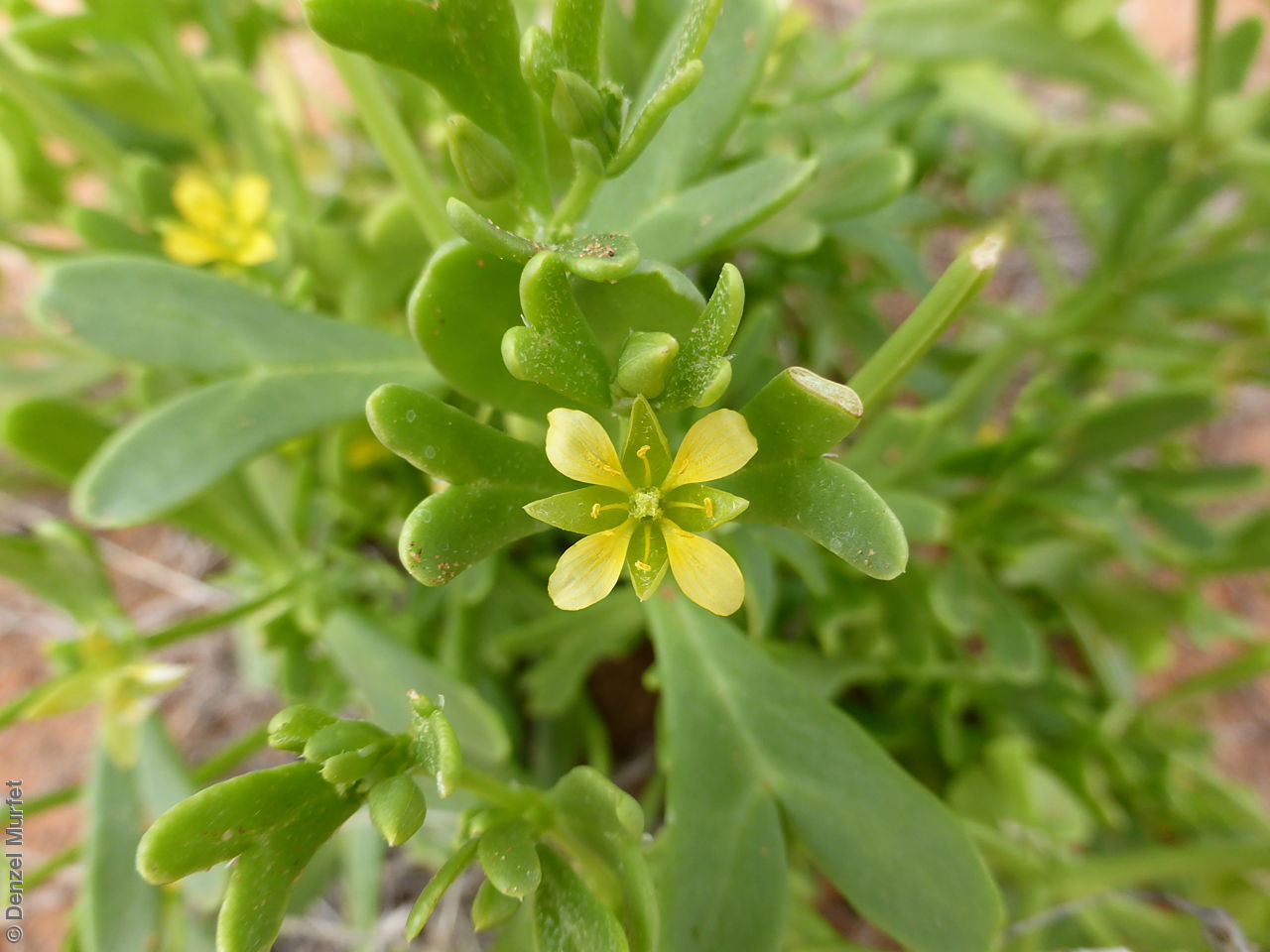
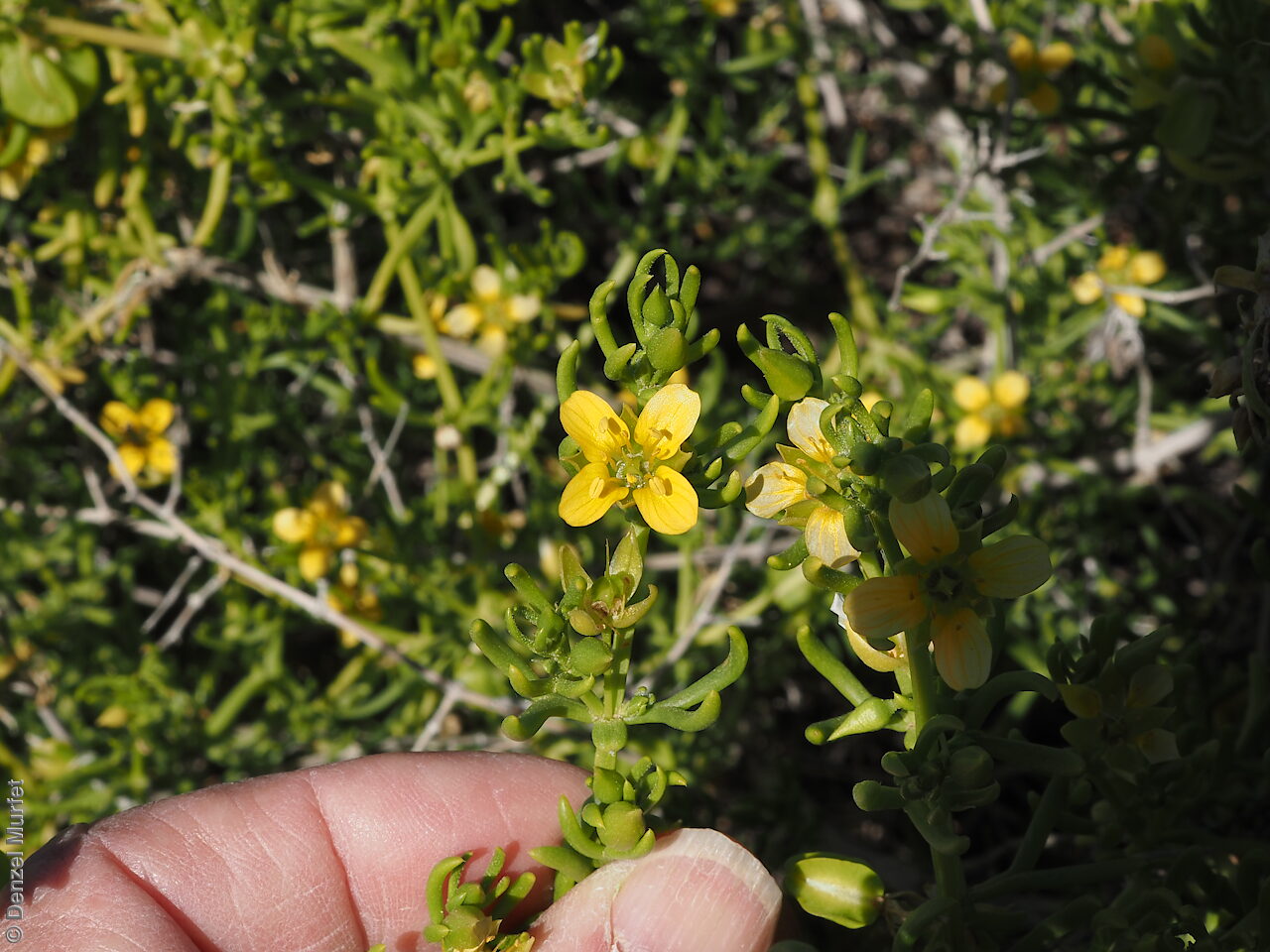
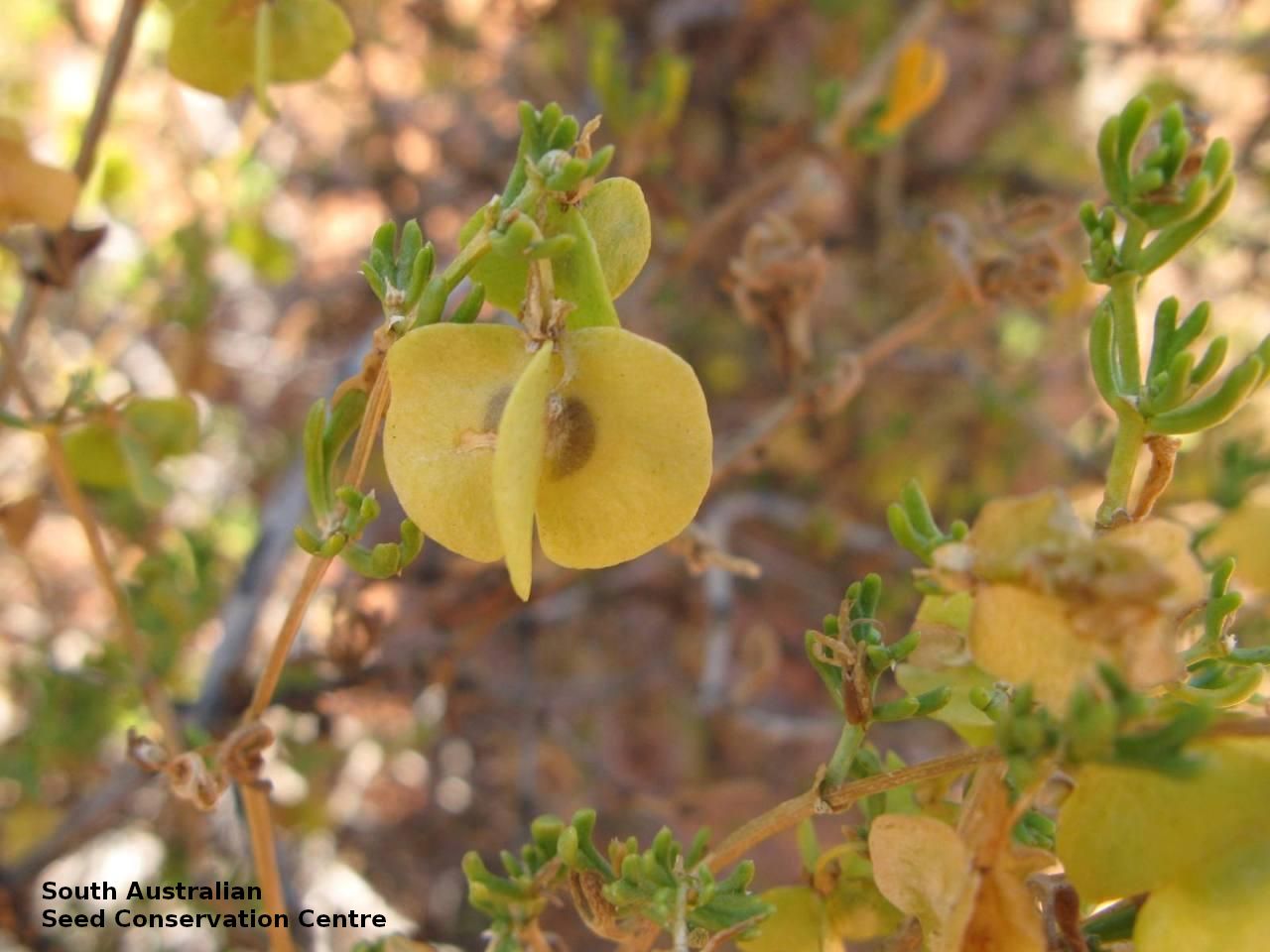
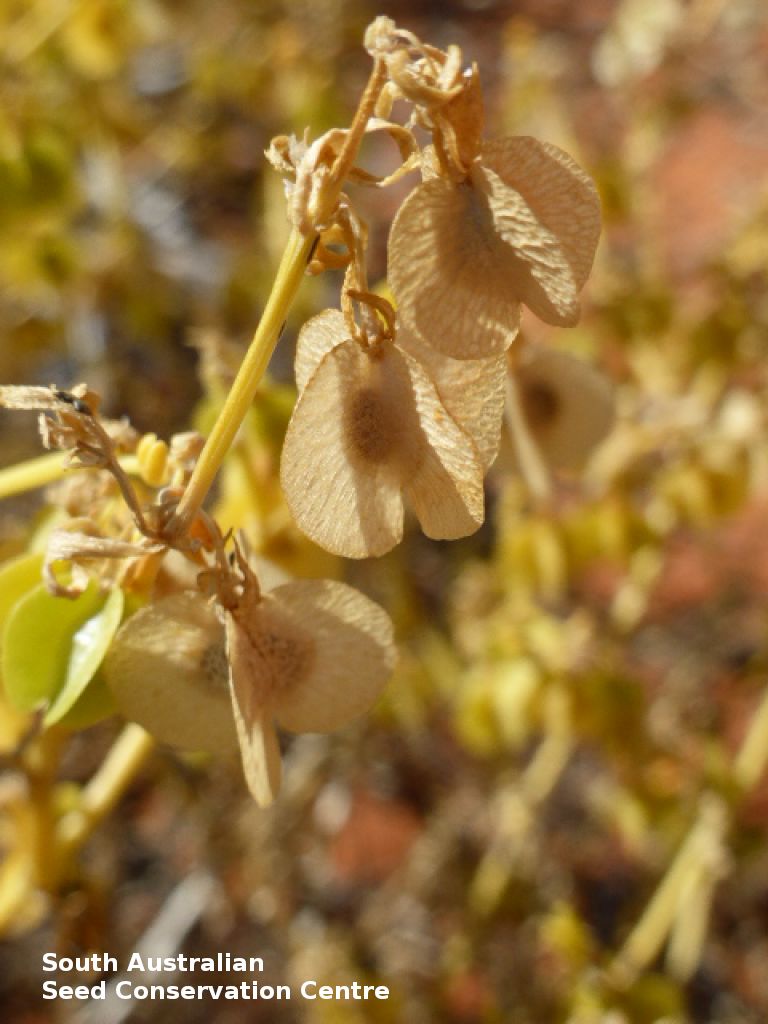
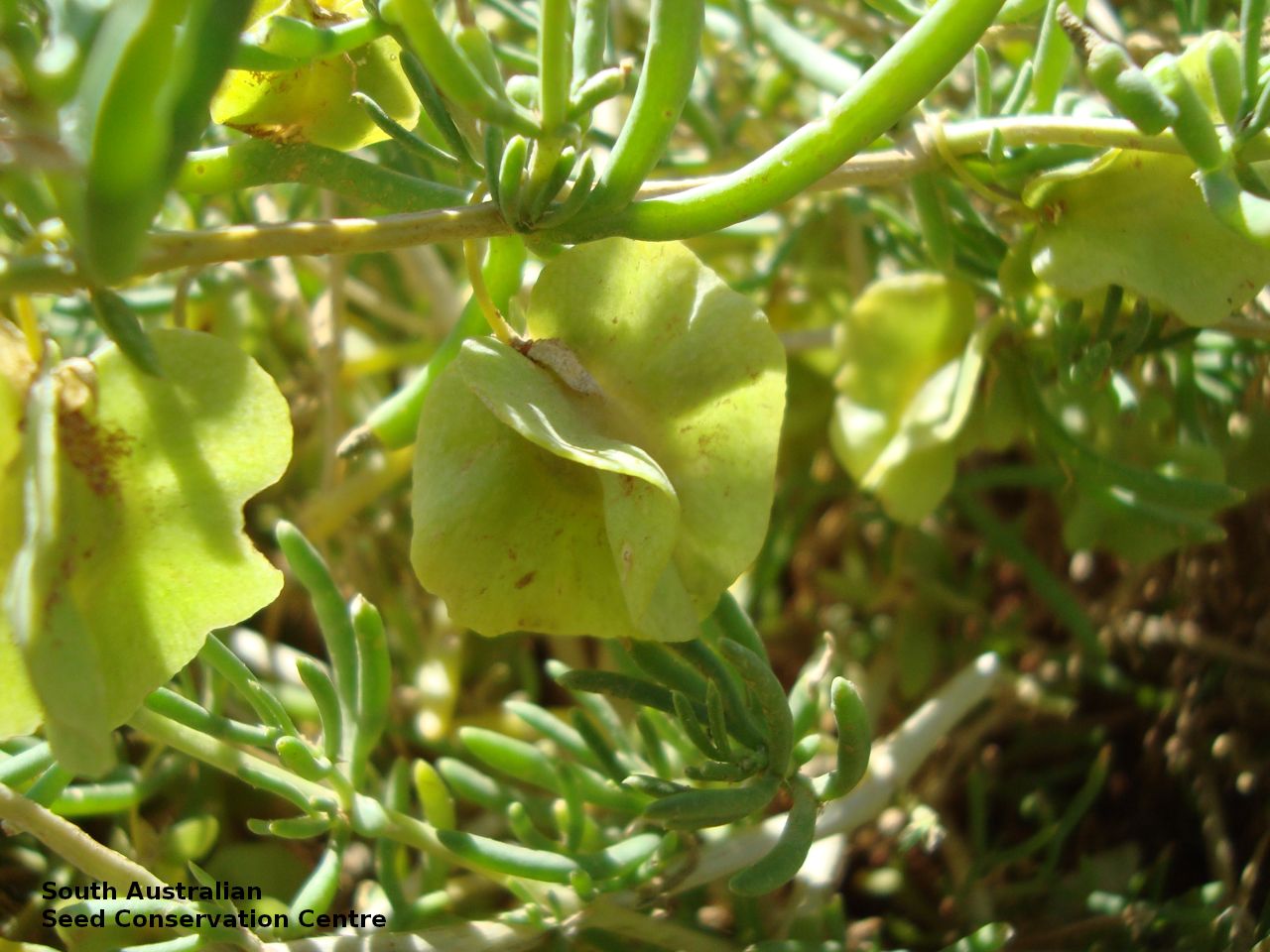
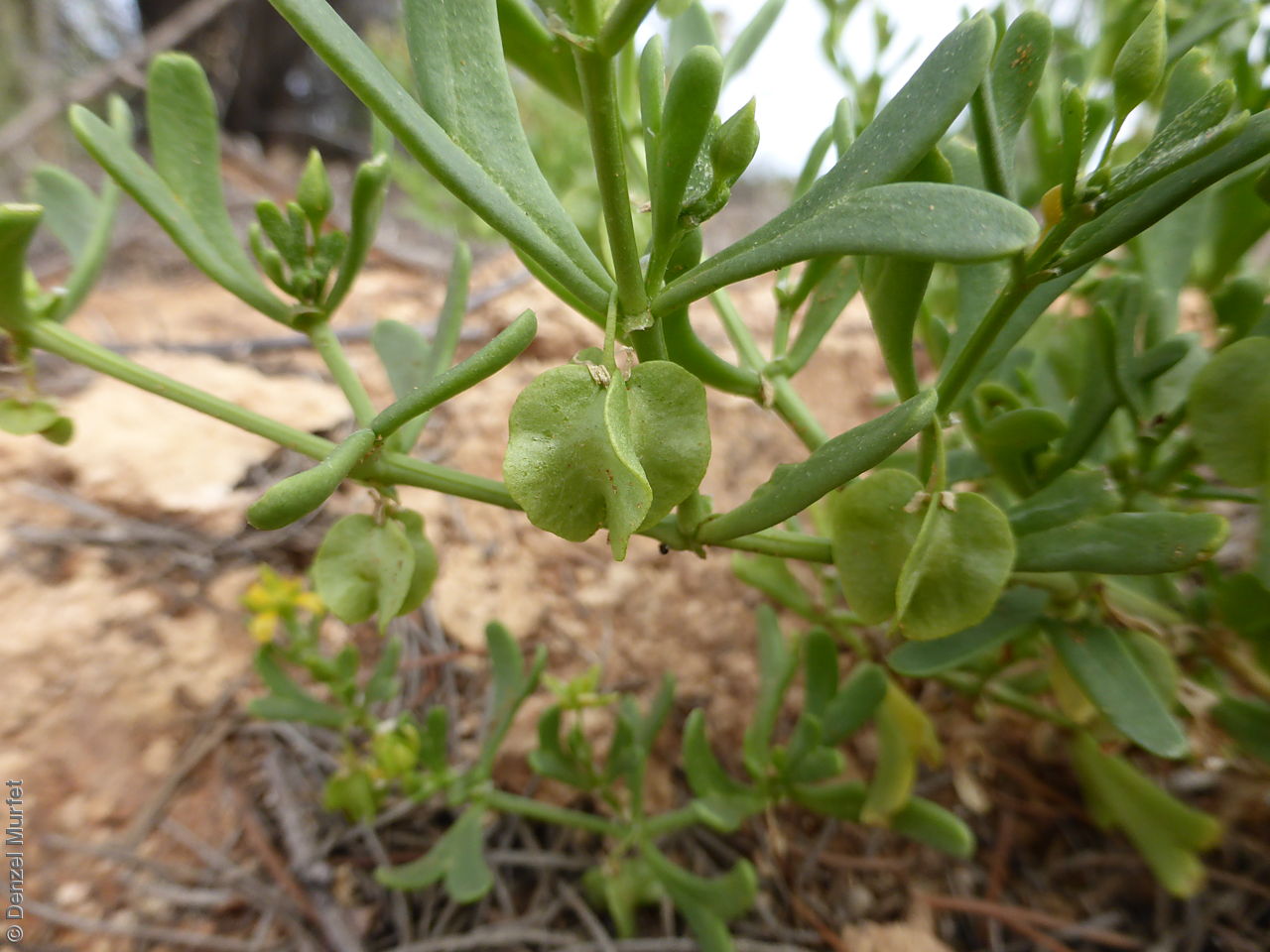
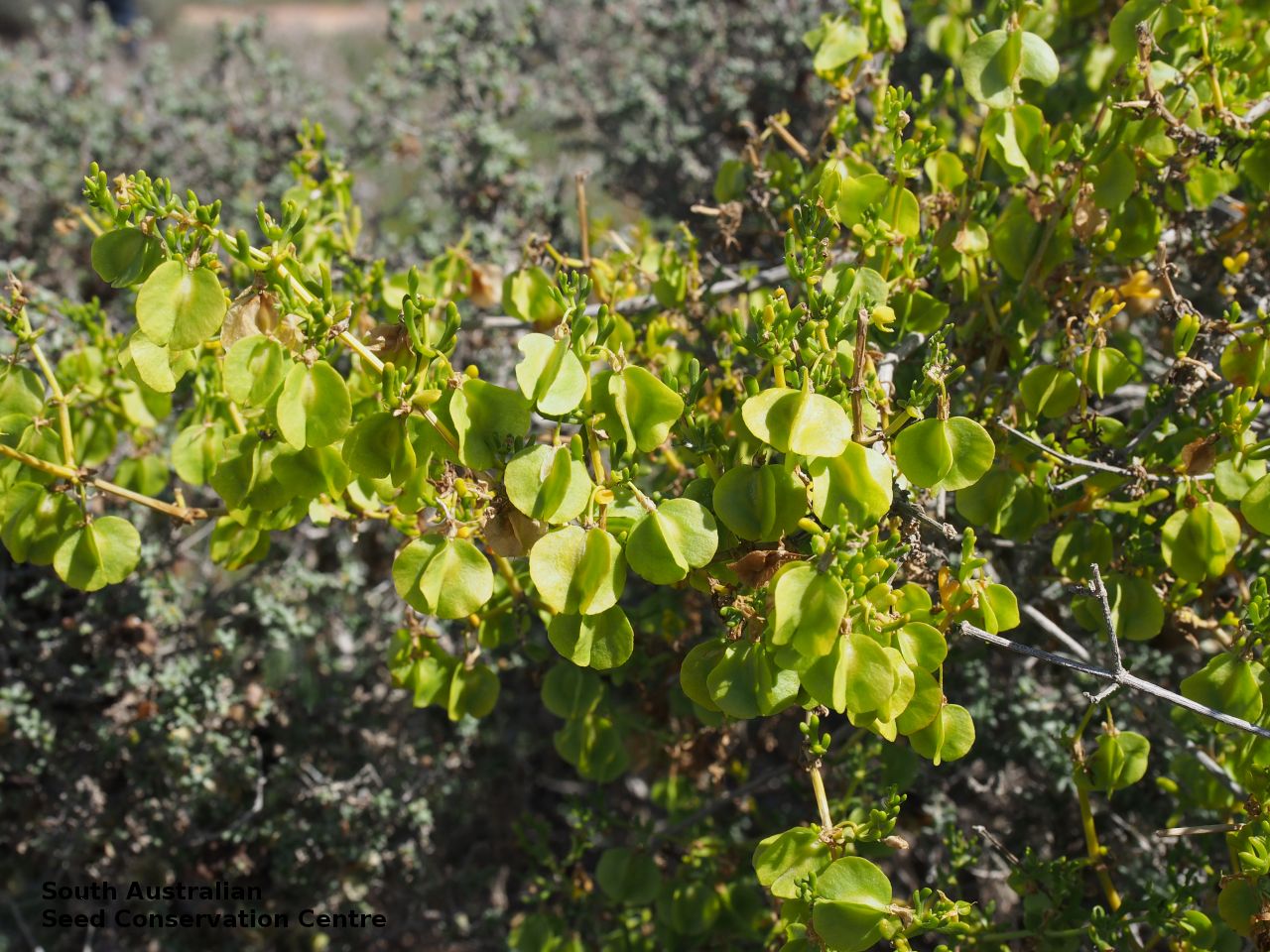
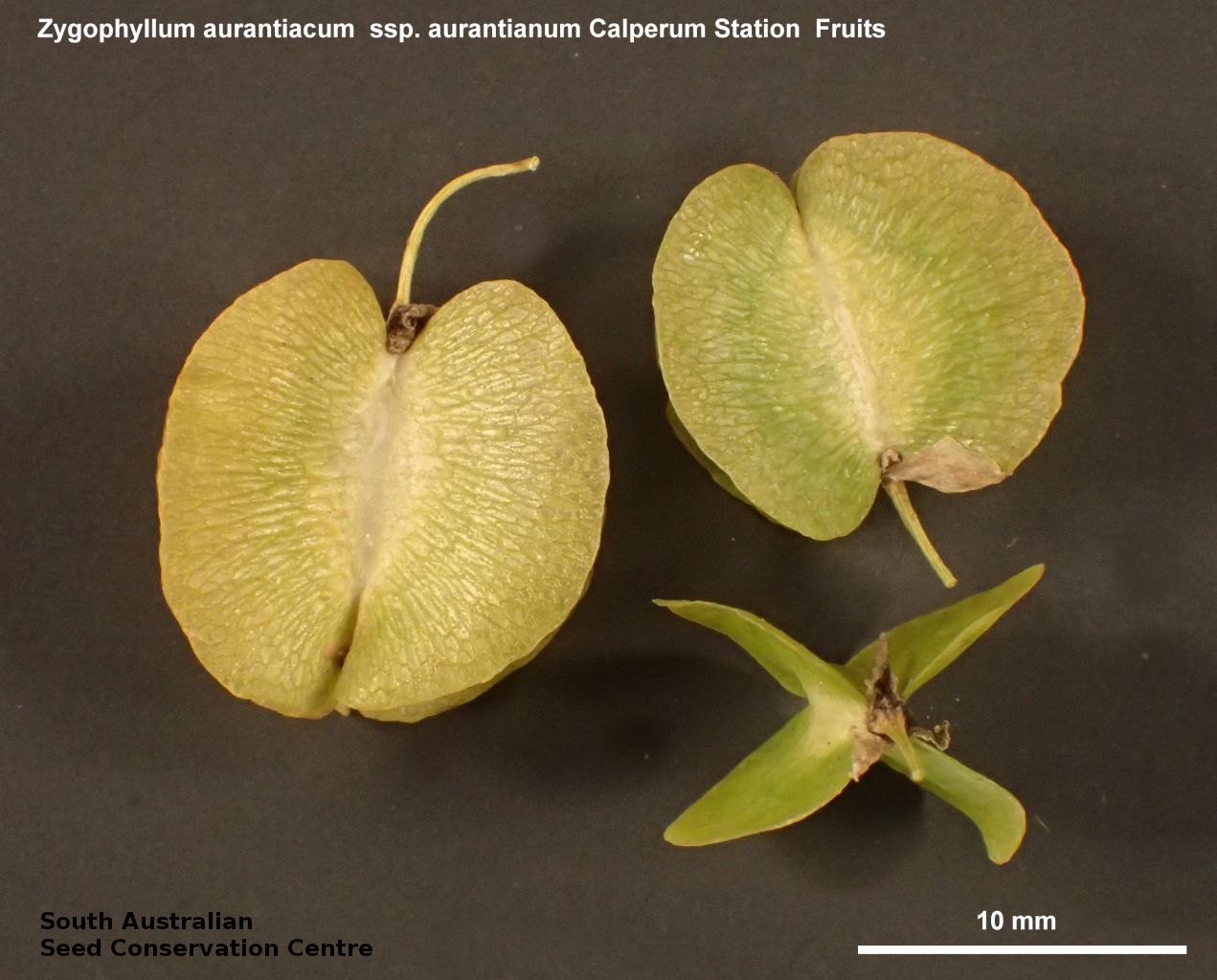
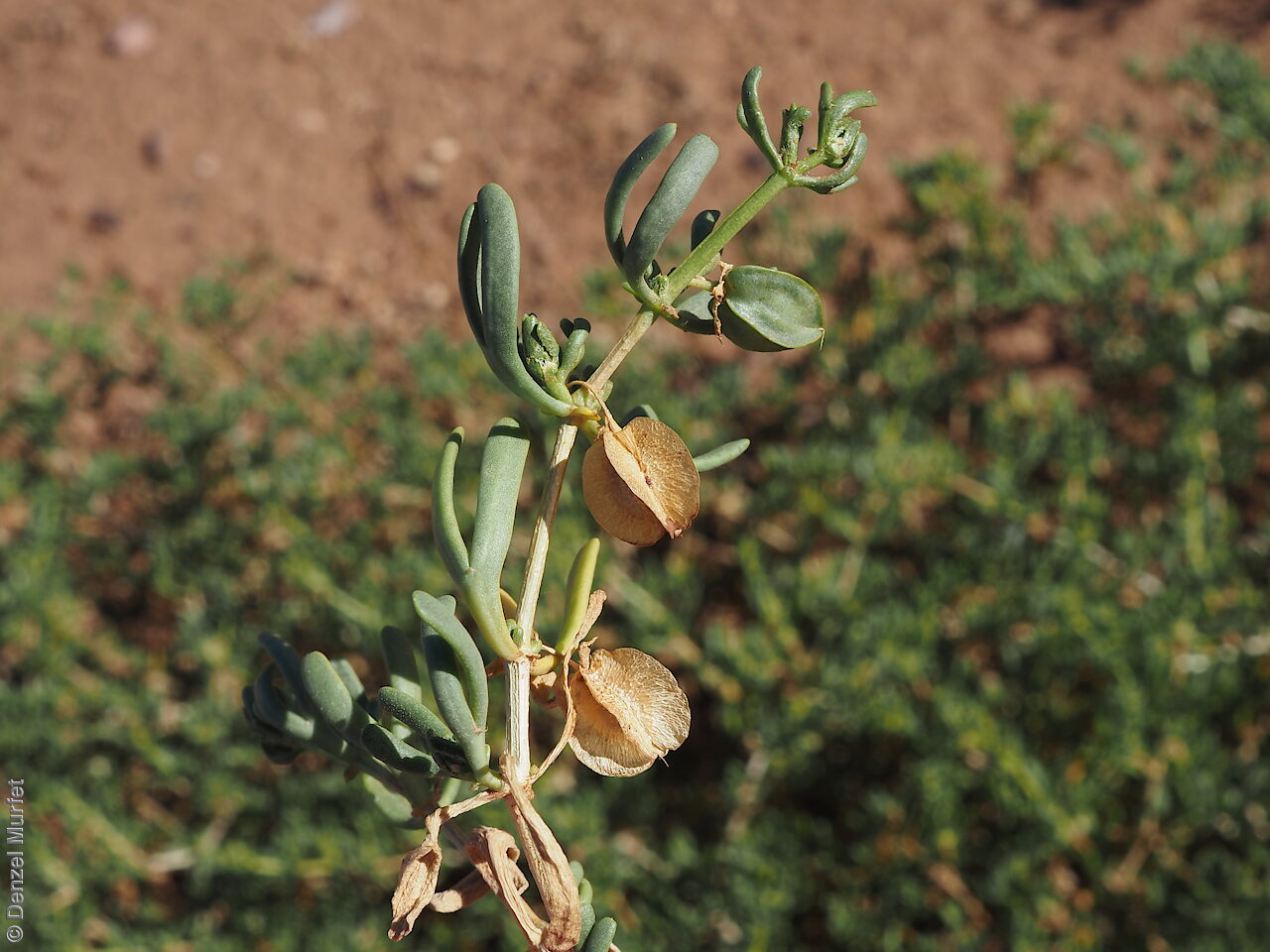
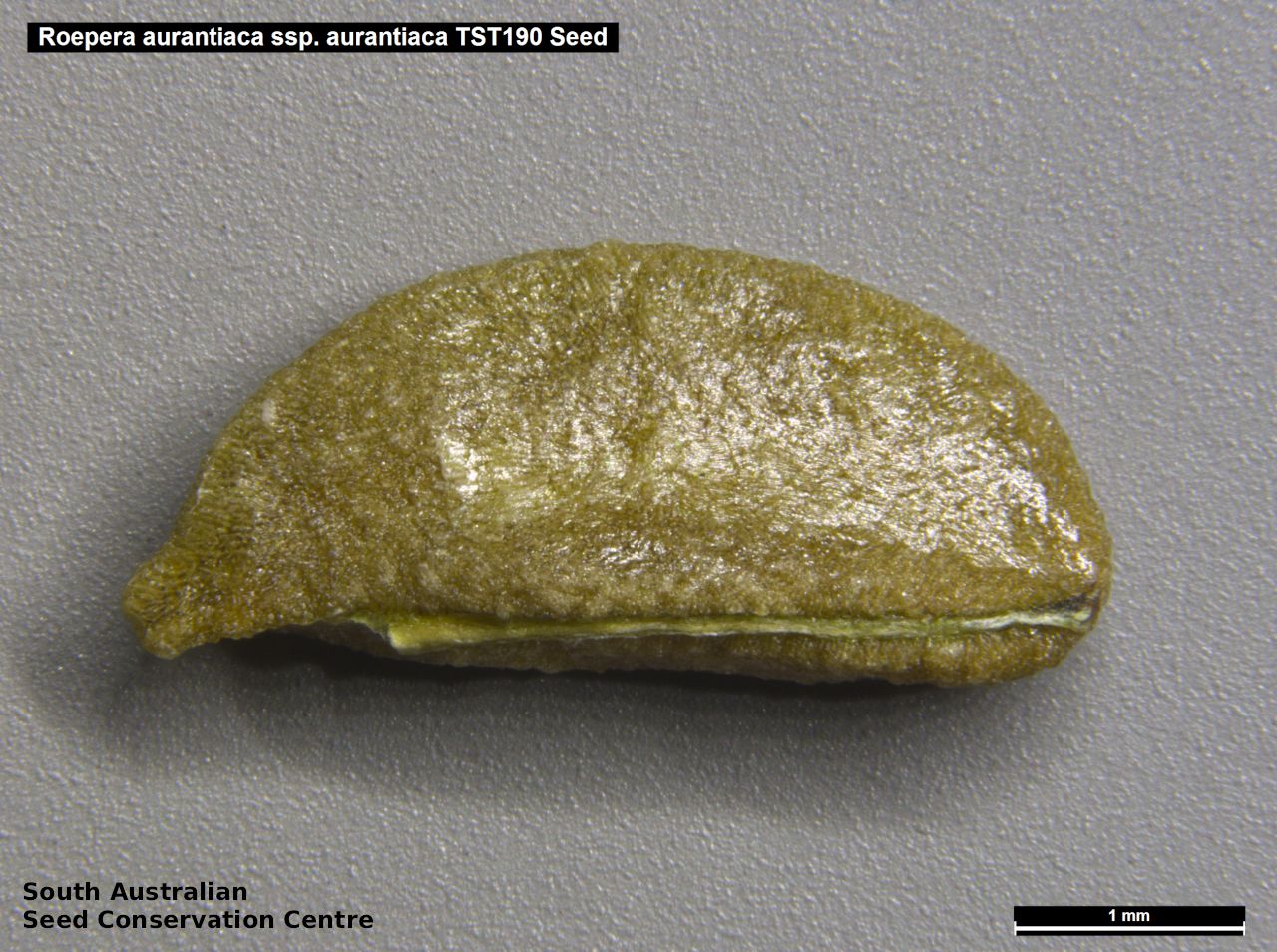
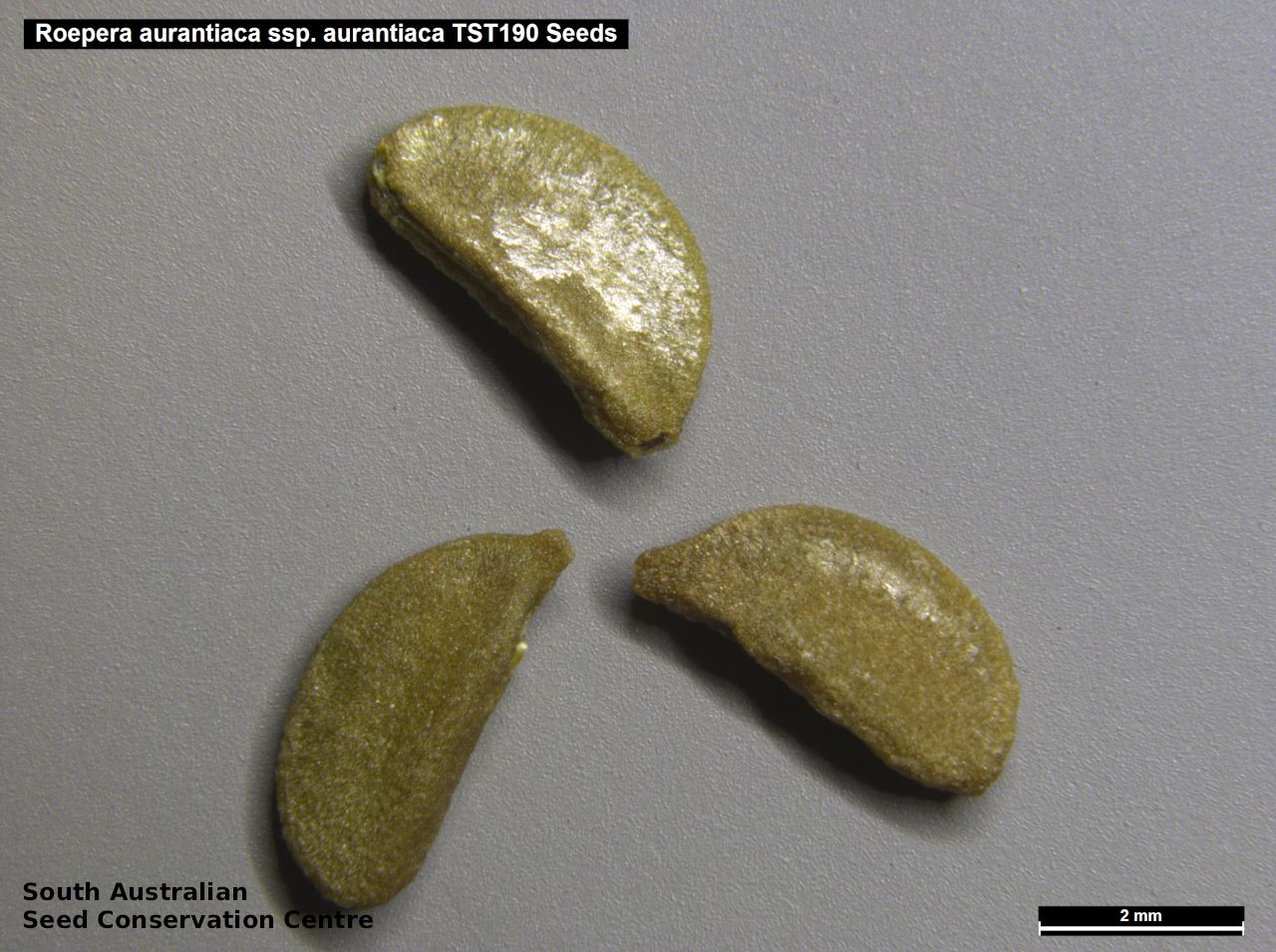
Regional Species Conservation Assessments per IBRA subregion.

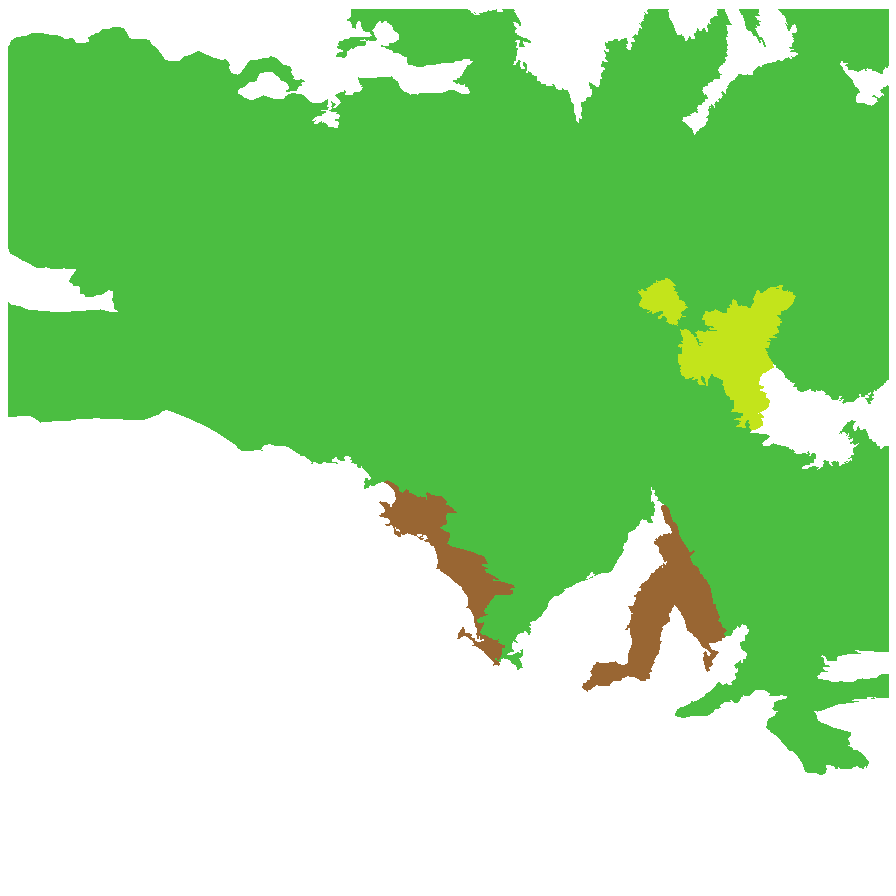
Least concern
Near threatened
Rare
Vulnerable
Endangered
Critically endangered
Extinct
Data deficient
Adelaide
Arkaroola
Ceduna
Coober Pedy
Hawker
Innamincka
Marla
Marree
Mount Gambier
Oodnadatta
Renmark
Wudinna
Keith
Yunta
Display IBRA region text
| Tintinara (NCP04) | Naracoorte Coastal Plain | Data Deficient [outlier, odd record] |
| Fleurieu (KAN02) | Kanmantoo | Data Deficient [(no records) 1 old record known] |
| Broughton (FLB02) | Flinders Lofty Block | Data Deficient [occurs on roadsides] |
| Olary Spur (FLB03) | | Data Deficient [occurs on roadsides] |
| Southern Flinders (FLB04) | | Data Deficient [occurs on roadsides] |
| Northern Flinders (FLB05) | | Near Threatened |
| Central Flinders (FLB06) | | Least Concern |
| Southern Yorke (EYB01) | Eyre Yorke Block | Rare (IUCN: RA d(i,ii)) (Probable Decline) [Coastal development a threat.] |
| St Vincent (EYB02) | | Rare (IUCN: RA d(ii)) (Probable Decline) [Coastal development a threat.] |
| Eyre Hills (EYB03) | | Least Concern |
| Talia (EYB04) | | Rare (IUCN: RA d(ii)) |
| Eyre Mallee (EYB05) | | Least Concern |
| South Olary Plain (MDD01) | Murray Darling Depression | Least Concern |
| Murray Mallee (MDD02) | | Least Concern |
| Braemer (MDD07) | | Data Deficient [occurs on roadsides] |
| Murray Scroll Belt (RIV06) | Riverina | Least Concern |
| Myall Plains (GAW01) | Gawler | Least Concern |
| Gawler Volcanics (GAW02) | | Least Concern |
| Gawler Lakes (GAW03) | | Least Concern |
| Arcoona Plateau (GAW04) | | Least Concern |
| Kingoonya (GAW05) | | Least Concern |
| Torrens (GAW06) | | Least Concern |
| Roxby (GAW07) | | Least Concern |
| Commonwealth Hill (GAW08) | | Least Concern |
| Maralinga (GVD03) | Great Victoria Desert | Least Concern |
| Kintore (GVD04) | | Least Concern |
| Tallaringa (GVD05) | | Least Concern |
| Yellabinna (GVD06) | | Least Concern |
| Nullarbor Plain (NUL02) | Nullarbor | Least Concern |
| Yalata (NUL03) | | Least Concern |
| Barrier Range (BHC01) | Broken Hill Complex | Data Deficient [occurs on roadsides] |
| Dieri (SSD03) | Simpson Strzelecki Dunefields | Least Concern |
| Warriner (SSD04) | | Least Concern |
| Strzelecki Desert (SSD05) | | Least Concern |
| Breakaways (STP01) | Stony Plains | Least Concern |
| Oodnadatta (STP02) | | Least Concern |
| Murnpeowie (STP03) | | Least Concern |
| Peake-Dennison Inlier (STP04) | | Least Concern |
| Macumba (STP05) | | Least Concern |
| Witjira (STP06) | | Least Concern |
| Baltana (STP07) | | Least Concern |
| Sturt Stony Desert (CHC02) | Channel Country | Least Concern |
| Coongie (CHC06) | | Least Concern |
| Watarru (CER02) | Central Ranges | Least Concern |
| Tintinara (NCP04) | Naracoorte Coastal Plain | Data Deficient [outlier, odd record] |
| Fleurieu (KAN02) | Kanmantoo | Data Deficient [(no records) 1 old record known] |
| 5 of 6 subregions | Flinders Lofty Block | Least Concern , Near Threatened , Data Deficient |
| 5 of 5 subregions | Eyre Yorke Block | Least Concern , Rare |
| 3 of 6 subregions | Murray Darling Depression | Least Concern , Data Deficient |
| Murray Scroll Belt (RIV06) | Riverina | Least Concern |
| 8 of 8 subregions | Gawler | Least Concern |
| 4 of 4 subregions | Great Victoria Desert | Least Concern |
| 2 of 3 subregions | Nullarbor | Least Concern |
| Barrier Range (BHC01) | Broken Hill Complex | Data Deficient [occurs on roadsides] |
| 3 of 4 subregions | Simpson Strzelecki Dunefields | Least Concern |
| 7 of 7 subregions | Stony Plains | Least Concern |
| 2 of 4 subregions | Channel Country | Least Concern |
| Watarru (CER02) | Central Ranges | Least Concern |
Botanical art
Kath Alcock paintings: 7
Prior names
Zygophyllum aurantiacum ssp. aurantiacum
Roepera aurantiaca
Zygophyllum fruticulosum var. bilobum
Zygophyllum fruticulosum
Common names
Shrubby Twinleaf
Etymology
Roepera (formally Zygophyllum which is from the Greek 'zygon' meaning pair and 'phyllon' meaning leaf; referring to the pair of leaflets making up each leaf) is named after Johannes August Christian Roeper (1801 -1885), a German botanist and physician. Aurantiaca from the Latin 'aurantiacus' meaning yellow-orange.
Distribution and status
Found across South Australia except on Kangaroo Island and in the South-East, growing in a variety of habitats and on different soils. Also found in all mainland states. Native. Common in South Australia. Common in the other states.
Herbarium regions: North Western, Lake Eyre, Nullarbor, Gairdner-Torrens, Flinders Ranges, Eastern, Eyre Peninsula, Northern Lofty, Murray, Yorke Peninsula, Southern Lofty
AVH map: SA distribution map (external link)
Plant description
A perennial, woody and bushy shrub that may grow to 1 m high and 1 m wide. Leaves are linear, fleshy and 'Y'-shaped with large yellow flowers. This subspecies differ from the other three subspecies found in South Australia, by having leaves with distinct petioles and leaflets, flat, narrow-oblong to linear, about as long as the linear petiole. Flowering between July and October. Fruits are yellow-brown round, four segmented capsule with paper wings. Each segment contains one seed. Seeds are pale brown, wedge-shaped to 5 mm long and 3 mm wide. Seed embryo type is spatulate fully developed.
Seed collection and propagation
Collect seeds between October and February. Collect semi-dried and dried capsules by running your hands through the stems of the plant. Mature fruits will come off easily and will have a hard and dark seed inside each segment. Place the capsules in a tray and leave to dry for 1 to 2 weeks, depending on how green the fruit is. Then rub the dried capsules to dislodge the seeds. Use a sieve to remove the unwanted material. Store the seeds with a desiccant such as dried silica beads or dry rice, in an air tight container in a cool and dry place. Seed viability is usually high.
| Location | No. of seeds
(weight grams) | Number
of plants | Date
collected | Collection number
Collection location | Date
stored | % Viability | Storage
temperature | BGA
MSB | 2,100 (7.21 g)
2,100 (7.21 g) | 30 | 15-Oct-2007 | TST190
Eyre Peninsula | 19-Sep-2008 | 90% | -18°C |
BGA
MSB | 10,000 (29.82 g)
10,000 (29.82 g) | 50+ | 21-Sep-2014 | DJD3029
North Western | 1-Jan-2016 | 100% | -18°C |
Location: BGA — the seeds are stored at the Adelaide Botanic Gardens, MSB — the seeds are stored at the Millennium Seed Bank, Kew, England.
Number of plants: This is the number of plants from which the seeds were collected.
Collection location: The Herbarium of South Australia's region name.
% Viability: Percentage of filled healthy seeds determined by a cut test or x-ray.
Germination table:
Display



















